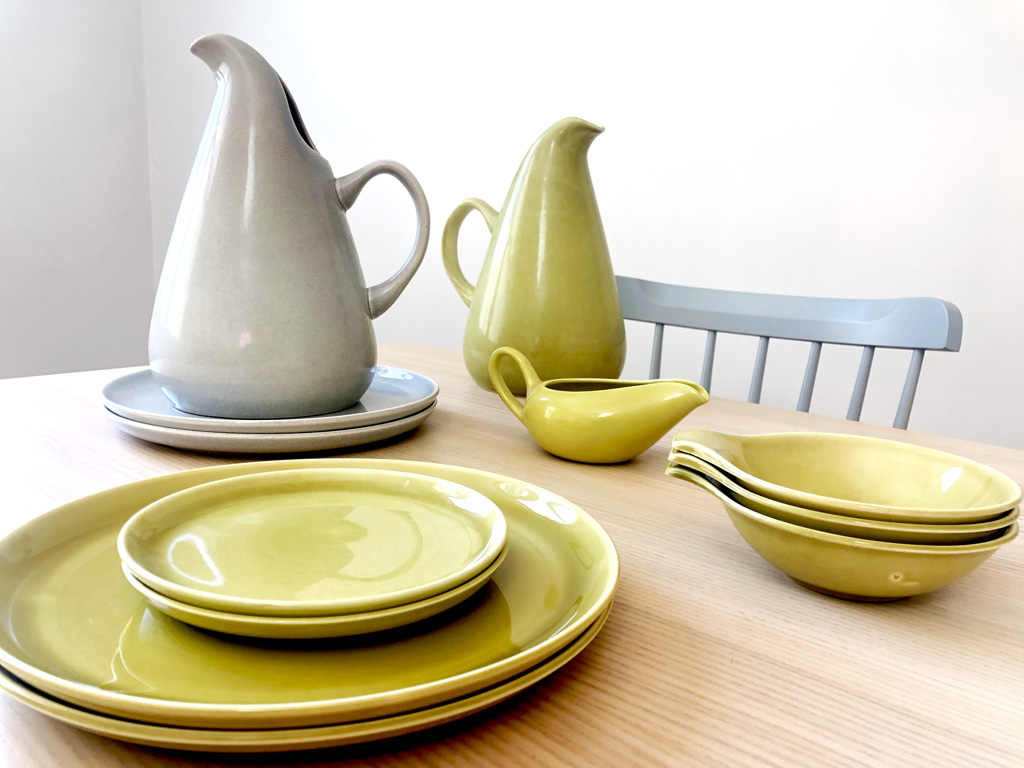Russel Wright Ceramics
My studio’s approach to furniture and product design has always been about reducing an object to the essential, to only that which is necessary to benefit that object’s function and its manufacturability, while assuring that the aesthetics are driven by those tenets first and foremost. The end goal of each new project is to arrive at a solution that is as pure as it can be in its appearance and its usefulness. I believe that this methodology builds an unobstructed emotional connection between the object and its user. Purity triggers emotion. I believe this fully.
In the great history of design, nobody lived this approach as quintessentially as the mid-century American designer Russel Wright. In the 1930’s, Wright saw an opportunity to separate American culture from its formal European roots by way of simplicity and casualness. That reductive practicality that Wright introduced to American life through his tabletop work and his furniture over the course of decades introduced more Americans to Modernism than any other designer before him, and arguably more than nearly every designer who has followed.
Russel Wright is one of very few personal design heroes of mine. I have built a beautiful collection of his work over the years, in particular his American Modern ceramics. They are a part of my everyday life. They are the perfect reminder to look only for what is necessary in my own work, and to eliminate all that remains.
Brad Ascalon
With a reductive approach to his craft, Brad Ascalon believes in design that is uncomplicated, rational and manages to find the perfect balance of form, function and concept. This philosophy coupled with his business-driven approach to design has made Ascalon widely regarded as one of the leading American designers of his generation.
Founded in 2006, Brad Ascalon Studio NYC collaborates with brands around the globe, including Carl Hansen & Son, Ligne Roset, Bernhardt Design, Restoration Hardware, DWR, Nude Glass, Skandiform, L’Oreal and others.
Immersed in the world of art and design from an early age, Ascalon is a third-generation designer who attributes his passion for creating to the two generations before him who instilled in him the values of craftsmanship, materiality and rigor.
In addition to his design practice, Ascalon teaches graduate level design courses at the renowned University of Pennsylvania as part of the school’s IPD (Integrated Product Design) program, a curriculum that bridges the university’s schools of Architecture, Design and Wharton School of Business.
Ascalon and his wife live and work in Manhattan, as well as the bucolic North Fork of Long Island, NY.


